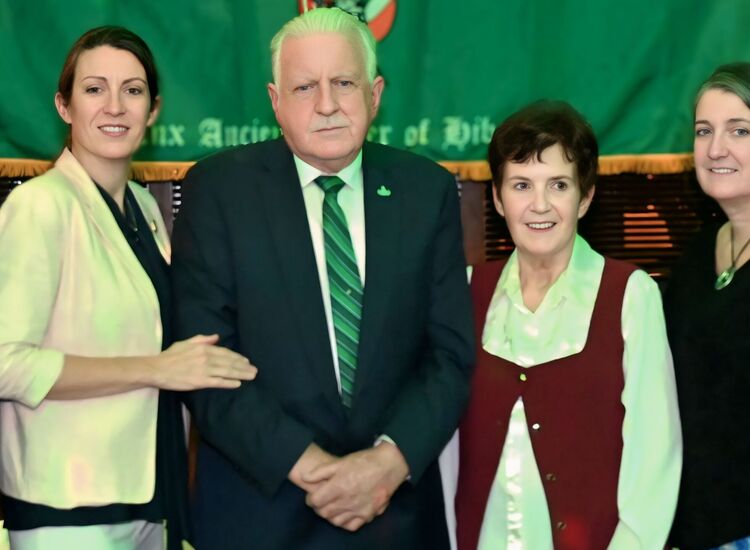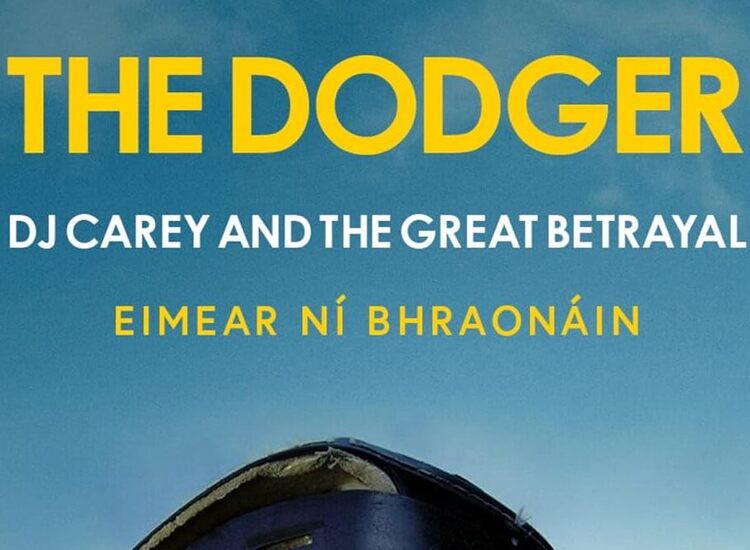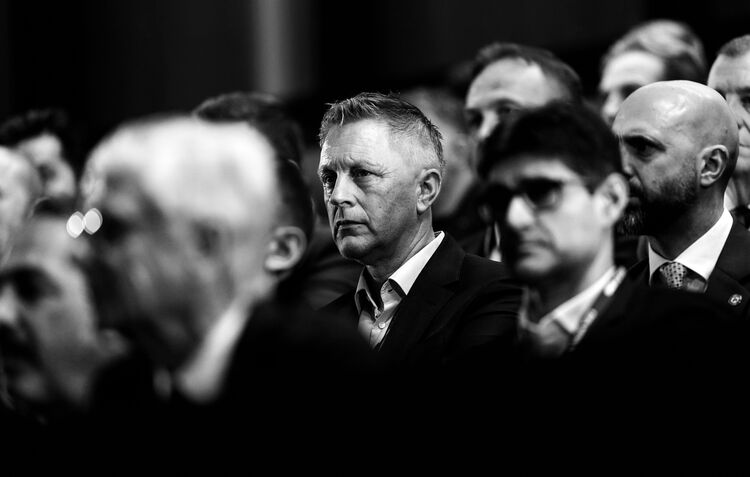Antoni O'Breskey.
By Colleen Taylor
When music is complicated and inquisitive, chances are the mind behind it is equally vibrant. Such is the case with composer and musician Antoni O’Breskey, who allowed me a fascinating glimpse into the intricate workings of his creative mind. The title of O’Breskey’s latest musical project speaks to his work’s energy: “When Bach was an Irishman and Mozart a Gypsy Boy.” In this album, classical music dances a waltz and a jig with influences from Irish trad. O’Breskey told me he likes to think of his cultural work not as research, but as an adventure, and that’s just what his album is: pure, sonic reverie.
You may not recognize his name, but you will recognize what he has done for Irish music. Antoni O’Breskey helped pioneer the inclusion of the piano in Irish genres. A composer and multi-instrumentalist, he has been hailed by many of Celtic music’s most renowned musicians and artists, from Ronnie Drew and Andy Irvine to Scottish radio host Fiona Ritche, as a vital visionary for the worlding of Irish music. He stands as one of the trailblazers of the new age and world music phenomenon in Ireland and abroad. O’Breskey helped to lead the crossover of Irish and flamenco genres, later popularized by shows like Riverdance.
O’Breskey first went to Ireland in the 1970s, where he quickly met some forerunners in the folk music revival, like Ronnie Drew, and the rest was history. Within the last decade, some of his projects have involved the exploration of Irish music through the medium of a trumpet, trad-blues infusions, and the mixing of Irish song and Basque art. His latest album is a musical prance through classical music and Irish folk tunes. “Ireland for me,” O’Breskey says, “is like an extraordinary meeting point between North, South, East and West, and you can hear this very well in the music.” In his latest album, O’Breskey seeks to further explore these continental ties through a celebration of Gypsy music.
O’Breskey showed me he is a true musical visionary, one who not only sees through cultural barriers, he plows through them. For this composer, musical categories of genre, century and nation bear no restriction or limitation for his creativity—he brings all eras and cultures together in one musical space. He said with liveliness, “when uilleann pipes play a lament, I feel [I am] in an Indian monastery.
Sometimes I imagine all the instruments transforming into trumpets, trombones and clarinets and I can hear New Orleans Jazz. When many fiddles are playing in the Donegal style I can see in front of me J.S. Bach having a pint with Turlough O'Carolan.” O’Breskey is far better at describing the imaginative, transformative qualities of his music than I could ever be, so I will leave it to quotes like this one to color the qualities of his music.
O’Breskey’s musical crossovers have an ethical imperative as well. He seeks to mesh the majority with the minority, the present with the past, and the vocal with the silenced, so as to “deflate the ethnocentrism of classical Western music.” For this musician, musical cultures are not defined by borders, but by historical roots that reach deeply across all areas of the globe. “Music is like a tree,” he said, “without strong and deep roots, we will not be able to expand our branches to the sky.” He seeks to imbue the music he plays in the twenty-first century with the values and integrity traditional and classical music holds: “It is not just only about what you play or how you play, but how you live the music and what you do with it: communication, participation, sensuality, dance, rituality, and more are all aspects which traditional music still has.”
Ireland will forever be not only a creative home base, but a literal home base, for O’Breskey. One of his greatest friends was Ronnie Drew, a man who sealed his lifelong romance with the nation and its culture. I asked O’Breskey what kept him coming back to Ireland, and his answer was as profound an avocation for the cultivation of Irish music as I’ve ever heard: “Traditional music is still there and an incredible number of young musicians, even children, play this music which contains all the beautiful values of Irish life. For me, [that] is like spring water which I need, and I feel it is precious for our Western world. This is the main reason I cannot abandon Ireland.”
This Spring, O’Breskey will share his new project with the UK and Ireland in a tour that will culminate in Belfast with none another that traditional music legend Mairtin O’Connor in April. If the richness of O’Breskey’s language and musical ethos hasn’t intrigued you, perhaps his songs will. You can listen to “When Bach was an Irishman and Mozart a Gypsy Boy” and learn more about O’Breskey’s fascinating career at nomadicpiano.com. You can also find his music on bandcamp.








